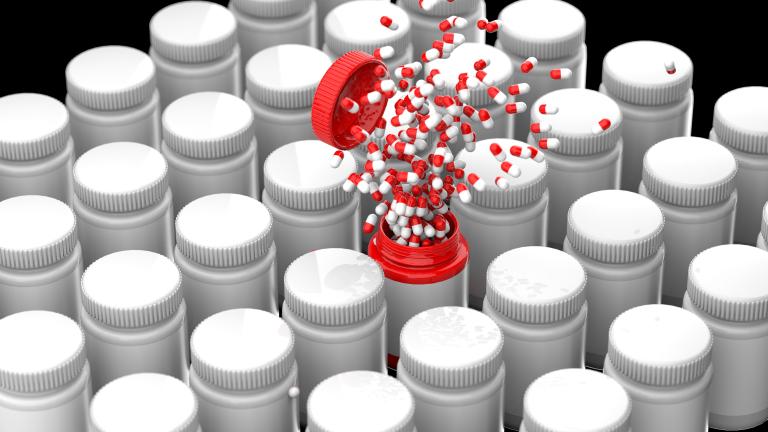
How To Know If You’ve Been Given Defective Drugs? It’s said that a significant number of illnesses may affect an individual in the whole course of their lifetime. Whether it’s prescribed or over-the-counter drugs, people rely on different medications to feel better and get back on their feet shortly after being affected by a disease.
Think of when you’ve taken some time off from work for a consultation and spent money buying the prescribed medications. What would you do if you found out you’ve been given a defective drug?
Medical and legal action must be taken immediately. Adverse effects may show on the dot; however, some manifest years later as a life-threatening disease. You may check Sadaka Firm and other reputable organizations to know what steps to take when you encounter defective drugs.
What Is A Defective Drug
The term defective drugs are used when the adverse effects greatly outweigh the drug’s potential benefits. All medicines sold in the market carry possible side effects, but most of them are just minor and get resolved within hours or a day.
People of all ages take medications. But the young and old are especially at risk of acquiring more severe side effects when a defective drug is administered.
Here are the following aspects to know in determining where and how to spot defective drugs as well as if you’ve been inadvertently or have been knowingly given some:
- Discoloration And Foul Smell
Mishandling during medicine transport can cause damage to bottles and containers. Medicines require standard storage temperatures; high temperatures may alter the composition and result in decomposition.
Distributors play a significant role in the preservation of medicines during bulk buying from other countries. Some may remain in storage until it expires. When sold unintentionally, it may cause anaphylaxis, poisoning, or long-term hospitalization.
- Drug Recall List
Nowadays, information can be grasped at the tip of people’s fingers. Whether you’re buying a prescribed or over-the-counter drug, make sure to look it up on credible websites and be aware of the drug recall list.
To avoid encountering defective drugs and misusing them, one must opt to consult a reliable doctor for safety.
A drug recall is an act of withdrawing drugs from the market that have been found to cause severe side effects or death. It may be done by the manufacturer voluntarily or by the Food and Drug Administration (FDA) itself.
It has been a great help to the populace in preventing various outcomes brought about by defective medicines. The drug recall list is transparent to everyone and it’s been a way of ensuring the trust and confidence of the people in medical health.
- Minor Adverse Reactions
Some persons may experience minor and abrupt adverse reactions within a few minutes, hours, or a few days after defective drug ingestion.
Once defective drugs have entered the system, they affect the central nervous system and vital organs and hamper the body’s natural homeostasis process. Disrupted homeostasis of the body may result in the following:
- Vomiting;
- Nausea;
- Syncope;
- Anaphylaxis;
- Chest pain;
- Diarrhea;
- Stomach pain;
- Headache; and
- Fever.
The individual must be taken to the hospital immediately for thorough medical examination and appropriate intervention. At times, it’d be safer if the individual had vomited out the drug, thus lesser damage it can do with the body.
Ingestion of defective medications can be traumatic. When irreversible, a person will suffer long-term hospitalization and develop conditions that decrease quality of life. Affected individuals may also feel depressed and defeated.
- Long-term Adverse Reactions
Knowing the cause of your ailment is crucial in planning for the procedures and interventions needed. But what would happen if the root of it dates back a year ago or so?

More even if the drug was used for some time or worse, as medical maintenance. However, intensive medical examination and research must be done to prove these claims.
Slowly but surely, consumption of a defective drug will result in life-threatening conditions such as:
- Liver damage
- Kidney failure;
- Physical debility;
- Stroke;
- Cardiac arrest; and
- Congenital abnormalities.
As a victim, you might feel confused and terrified of this unpredicted circumstance. In addition to the emotional and physical trauma, the family also endures economic and non-economic losses.
Medical expenses are doubtlessly costly, as well as lifetime medical monitoring. After the medical measures, how can the victim take this into legal action?
What Are The Grounds For A Possible Lawsuit
Hiring an experienced lawyer will guarantee the victim receive the optimal monetary compensation they’re eligible to. The plaintiff must present hard pieces of evidence that the defendant made errors in formulating, manufacturing, and labeling their productions.
Punitive damages may be imposed if proven that the defendant knew the dangerous adverse reactions but failed to disclose them to the public. Here are the grounds in filing a lawsuit after you’ve been given defective drugs:
- Type of drug used (brand name and/or generic name);
- Duration of use;
- Indication for use;
- Specific adverse reactions and sustained injuries/conditions (blood works, imaging test results); and
- Proof of error in the production of drugs (formulation, manufacturing, labeling).
Who Are Held Liable For The Defective Drugs
The plaintiff must conduct a comprehensive investigation to determine which aspect of the chain of drug distribution made an error leading to the case at hand. The following may be held responsible:
- Pharmaceutical company or manufacturer;
- Drug testing laboratory;
- Hospital or clinic;
- Prescribing physician, pharmacist, sales representative; and
- Distributors.
How To Avoid Defective Drugs
Proper research and consulting a trustworthy doctor may help in avoiding defective drugs. It’s only imperative that when side effects feel more severe and disabling, one should seek medical attention promptly.
The FDA and pharmaceutical companies may not be aware of other harmful drugs until a case shows up on their radar.
Taking All Into Consideration
All drugs approved to be sold in the market have undesirable adverse effects. Though its degree varies in the user’s age, weight, height, gender, and capability of the immune system to handle, they often come as minor ones.
The existence of defective drugs endangers the overall safety of the populace; they’re vessels for tribulation. Regrettably unavoidable, all parties from the distribution chain to the citizens must take extreme measures to steer clear of defective drugs.
There’s a thin line between remedy and tragedy. Medicines are supposedly considered the ‘lifesaver’ of humanity; hence, everyone must be aware of the existence and use defective drugs.
